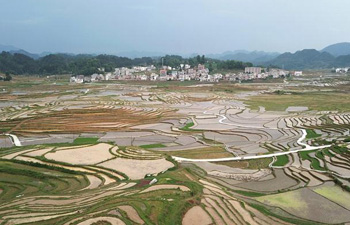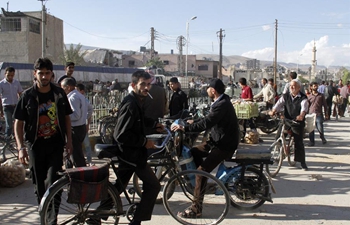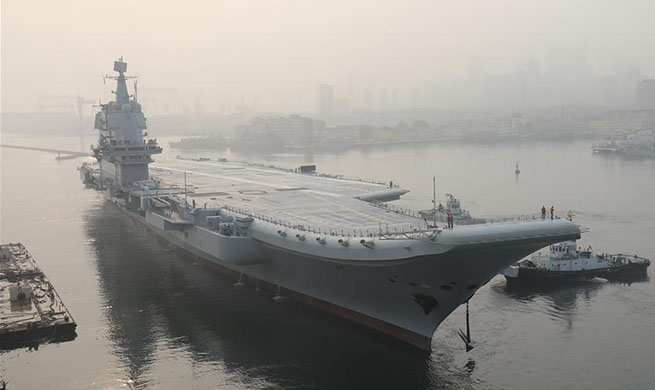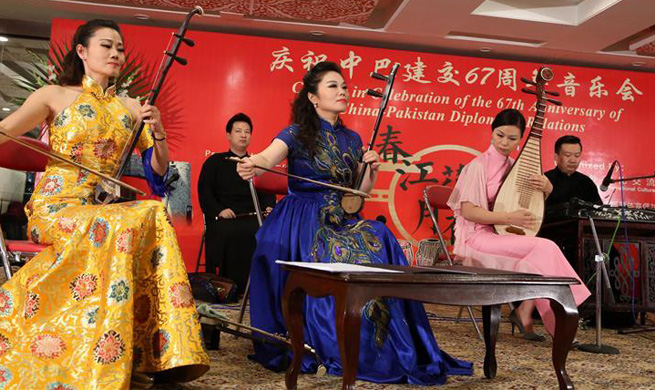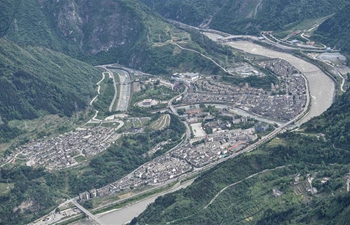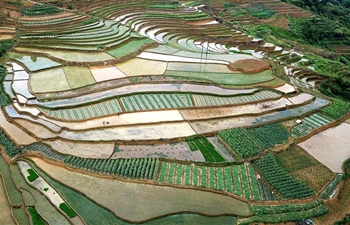URUMQI, May 14 (Xinhua) -- With a roar, the large turbines of a four-story-tall seed-drying machine swirl into life. Each minute, it processes more than a tonne of seeds.
This is one of China's most productive seed-drying machines, owned by Join Hope Seeds Co. Ltd., based in Changji, in northwest China's Xinjiang Uygur Autonomous Region.
The company, founded in 2003, is a major producer of corn, wheat, and cotton seeds, mainly meeting the demands of the domestic market, but has its eyes set on the increasingly lucrative market in Central Asia.
"We have teamed up with Kazak research institutions to develop seeds suitable for local soil and climate conditions," said CEO Hu Baomin.
The company recently set up a subsidiary in Kazakhstan and built an agricultural research center with an area of 133.3 hectares, larger than its own domestic campus.
Xinjiang, China's northwest doorway to Central and West Asia, sits at the center of the ancient Silk Road. Local businesses are eyeing greater opportunities westward as China sets to revive the ancient trade route.
The autonomous region saw a 24.2 percent increase in foreign trade in the first two months of 2018, with the trade volume with Kazakhstan hitting 1.4 billion U.S. dollars, a surge of 47.7 percent year on year, according to customs statistics.
Like Join Hope, other local companies have broken into markets in neighboring countries which have a similar climate, culture, and customs, while firms from other regions of China have set up Xinjiang branches for easier access to Central Asia.
"This year, we shifted our focus from the domestic to the international market," said Kerim Memetniyaz, owner of Xinjiang Parlak Carpet Factory, adding that Kazakhstan, Kyrgyzstan, and Uzbekistan are their main export destinations.
"Exports already generate 30 percent of our revenue and we expect it to grow further," said Memetniyaz.
The history of carpet exports from Xinjiang dates back to West Han Dynasty (206 B.C.- 24 A.D.) Delicate, handmade carpets from the region were a popular product on the ancient Silk Road.
"Carpet is a symbol of being rich in Uygur culture," said Memetniyaz. "Uygurs cover their floors with carpets and wealthier families also drape them on all the walls."
"The custom is shared by many countries in Central and West Asia," he added.
To meet demand, the types of carpet produced in the factory have been extended from traditional Uygur to a combination of Uygur, Persian, and Kazan styles, Memetniyaz said.
In the future, the company plans to invest 600 million yuan (94.7 million U.S. dollars) to expand its factory and upgrade equipment.
Just kilometers away from the carpet factory, China Railway Construction Heavy Industry Co. Ltd. (CRCHI), China's leading heavy equipment maker, based in the central province of Hunan, set up its Xinjiang subsidiary in 2015.
Machinery and appliances were the second biggest contributors to export growth in the provincial capital Urumqi in 2017 and have been increasingly transported on the China-Europe rail freight routes, according to Urumqi customs.
"As orders from Central and West Asia increased, the company deemed it necessary to set up the subsidiary," said Zhang Shimin, head of CRCHI's Xinjiang branch.
Transporting a tunnel boring machine, the company's main product, from Hunan to Xinjiang costs about three million yuan.
"That accounts for five to eight percent of the price of the machine," Zhang said.
Since its establishment, the branch has helped CRCHI save more than 60 million yuan.
"We are now bidding for another project in Kazakhstan," said Zhang. "The Central Asia market is full of potential."








